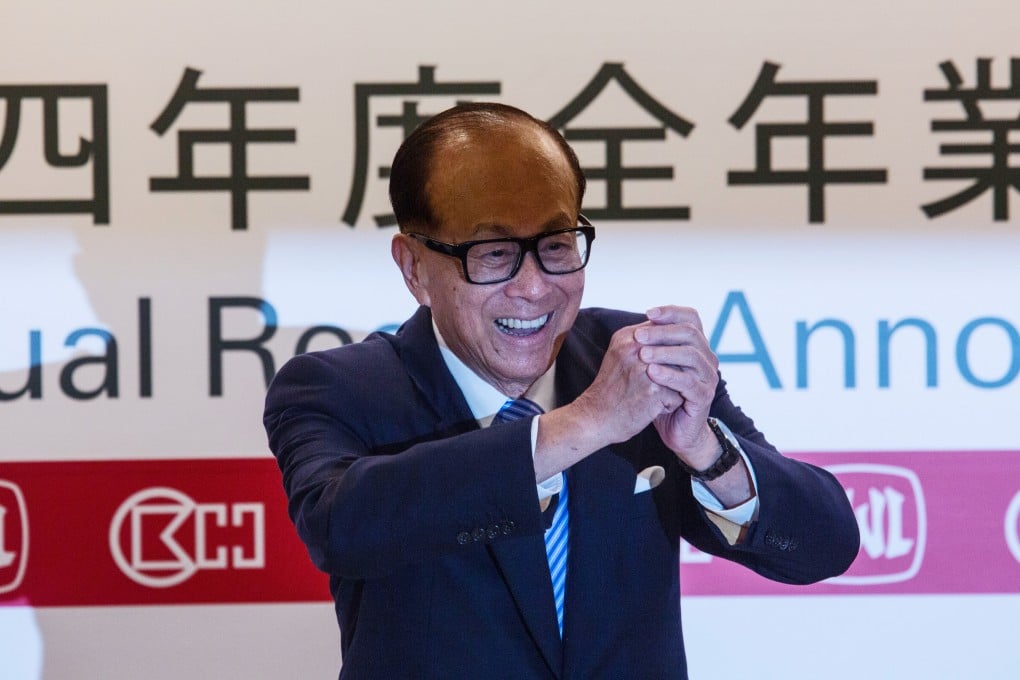Update | Hutchison Whampoa’s full year net soars, but headwinds seen in 2014
“Some of our businesses encountered increasing headwinds in the second half of 2014 with increased currency volatility, (the) slow property market in mainland China and a sharp plunge in crude oil prices” Li Ka-shing

Billionaire Li Ka-shing’s Hutchison Whampoa 2014 full year net profit jumped 116 per cent year on year to HK$67.2 billion, buoyed by gains in property revaluation and disposal of investments.
But if one excludes one-time gains, the recurring net profit grew by just 3 per cent to HK$32 billion, falling short of analysts’ expectations it would stand at HK$32.8 billion.
Revenue rose 2 per cent from a year ago to HK$421.5 billion. Hutchison, soon to be renamed as CK Hutchison to house all of Li’s non-property assets, fetched HK$25.1 billion in marking property assets to market value, and HK$10billion in divestments.
“Some of our businesses encountered increasing headwinds in the second half of 2014 with increased currency volatility, (the) slow property market in mainland China and a sharp plunge in crude oil prices,” said Li, the chairman of the company.
The tycoon reiterated that the company will adhere to the principle of “advancing with stability” and make prudent investment decisions based on the long term interests of shareholders. The company should hit its business objectives, taking into consideration the severe decline in oil prices.
“We pushed as far as we could – argued our way out in every reporting period – to resist adjusting property value, because we think it would introduce volatility [to earnings],” group finance director Frank J Sixt told a press briefing. “The current valuation is still very conservative, compared to other property companies.”
Business in UK and Europe altogether contributed 43 per cent earnings before interest, tax, depreciation and amortisation (Ebidta), further widening the gap between the share of Hong Kong and mainland operations, which accounted for 26 per cent Ebidta. A slew of acquisitions, notably the £10.25billion (HK$119.4 billion) deal to buy O2 in Britain, and the decision to move corporate registration to the Cayman Islands, have rekindled speculations that the Hong Kong tycoon is leaving his home base.
